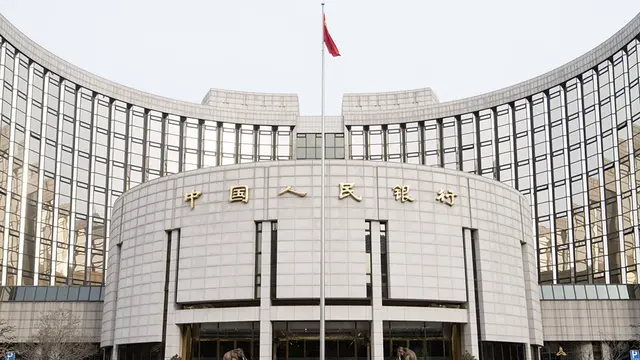China will continue to encourage financial institutions to make interest concessions appropriate for the real economy with more targeted measures, a senior official said Friday.
The country will intensify efforts to better implement preferential policies and make more targeted and effective measures to bolster the real economy, Liu Guoqiang, vice governor of the People's Bank of China, told a press conference.
In the first 10 months of this year, the financial system has helped firms save a total of 1.25 trillion yuan (about $188.7 billion) through cuts in interest rates and bank charges, and other monetary policy tools, he said.
It is expected that the country will meet its annual target to help businesses save 1.5 trillion yuan, Liu added.
To stabilize economic fundamentals and help enterprises amid the COVID-19 epidemic, China has rolled out a raft of measures to reduce financing costs for these firms and step up interest rate reforms.
"These policies are taking effect and market confidence is being restored," Liu said, pledging that the country will adhere to prudent monetary policies in a more flexible and appropriate way, and enhance financial support for the real economy.
China saw an accelerated recovery in its production and business activities, with the manufacturing purchasing managers' index standing at 51.4 in October, slightly down from 51.5 in September but above the market expectation of 51.3, earlier official data showed.
After the Shanghai Stock Exchange announced on Tuesday evening the postponement of Ant Group's listing on the Nasdaq-style STAR Market, the fintech giant announced later on the same day the suspension of its listing in Hong Kong.
The bulk of Ant's revenue comes from its "Credittech" business which operates a range of loan services targeting individuals and merchants. Credittech revenue grew 59.5 percent year on year in the first six months of the year to 28.6 billion yuan, constituting 39.4 percent of its total revenue in the interim.
Chinese authorities may have realized that an unregulated fintech sector growing exponentially at the expense of the incumbents could have provoked a domestic financial market relying on a state-owned banking system that employs a large portion of the country's population, which is unquestionably detrimental to the real economy.
(Cover via CFP)
(CGTN)
 简体中文
简体中文

